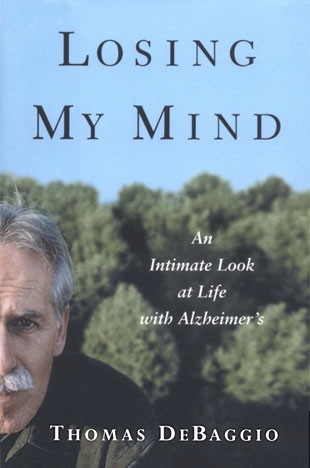"My memory, which had been my sacred touchstone, was failing long before I expected. I was losing the ability to remember things important to me. I had difficulty recognizing the names of many of my plants, and even friends I saw infrequently," writes 57-year-old Thomas DeBaggio at the start of this bittersweet autobiography about the early onslaught of Alzheimer's, a dread disease that now afflicts 12 million Americans. The author, a former journalist and a nationally known expert on herbs, reveals that this illness is "a consequence of bad luck, subtle effects activated in the brain, and parents who carried corrupted genes."
DeBaggio has written an unusual account of Alzheimer's mixing reflections of his past life as an Iowa farm boy with medical records and dispatches from his increasingly confusing and difficult existence. At one point, he calls the disease the equivalent of being eaten alive slowly and on another page he writes, "I am being gobbled up in time." His expressed purpose in writing this memoir is to break through the sense of shame and silence surrounding Alzheimer's.
DeBaggio recalls that his parents taught him that name-calling was similar to spitting on a person. Yet in the midst of his inability to remember words, the author's anger rises to a boil. He spends five minutes struggling to spell the word "hour" and is troubled by his inability to find things in his home. As more signs of his verbal atrophy become apparent, DeBaggio feels guilty for not having traveled with his wife who now faces a care-taking job of monumental proportions for the next five to eight years.
The author compliments his deaf cat Sabrina for being such a stalwart companion during his deteriorating days. "I am running after thoughts all day. Ideas evaporate like snowflakes on a hot tin roof." These courageous dispatches from the center of DeBaggio's besieged life elicit our respect and compassion. By the end of the book, his memories of each twenty-four hour day are obliterated immediately.
